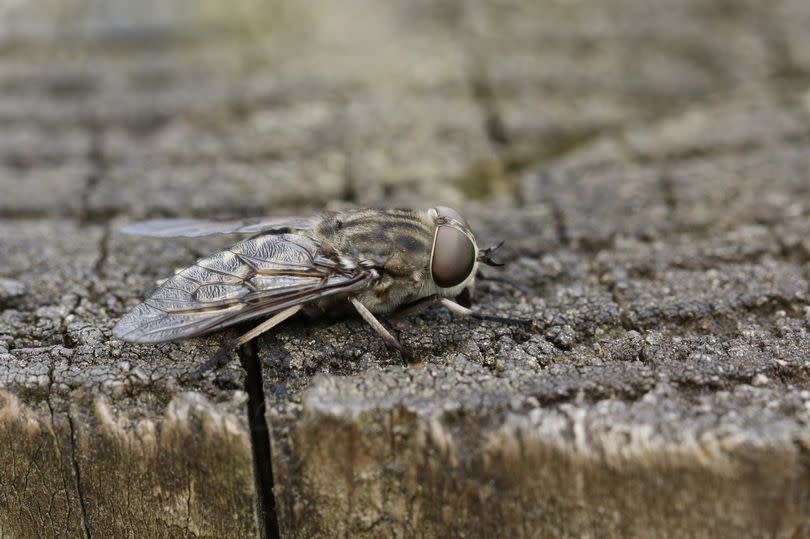What to do if 'relentless' bug with 'most painful bite in UK' picks you

As pleasant as summer can be, it can bring a range of health hazards - from dehydration and sunburns to nasty insect bites. One of the worst in the UK are horseflies. They are most active between May and September, making them a common irritant during the summer months.
As their name implies, horseflies are particularly fond of horses, so it's not uncommon to see them swarming around stables and nearby fields. While their bites can be painful, they're typically not harmful to humans.
Only female horseflies bite and have the ability to tear the skin and feed on blood. This is because females require a blood meal for egg development after fertilisation. Males, on the other hand, don't produce eggs and therefore have no need for blood.
The Cleveland Clinic describes female horseflies as "relentless", equipped with well-developed mouths capable of tearing skin until small vessels break and blood begins to flow. They then use a sponge-like tongue to soak up the blood.
Horseflies are often able to land without being detected. They're lightweight and only around 1-2.5cm in size.
Dr Daniel Whitmore, Senior Curator of Diptera and Siphonaptera at the Natural History Museum, explained that the horsefly's bite is "much less sophisticated" when compared to something like a mosquito. He suggests this is likely due to their usual prey having tougher skin than ours, such as cows or horses. However, they will target any large mammal they detect.
It's possible to have an allergic reaction to a bite or develop an infection from it. In very rare cases, a horsefly can pass on a bacterial infection called tularemia - also known as 'rabbit fever' - through a bite. Occasionally, a horsefly bite may cause dizziness and leave you feeling breathlessness.
One of the easiest ways to avoid being bitten is to cover up. But, according to Dr Whitmore, even this might not be 100% effective.
He said: "Horsefly females have such strong, powerful mouthparts that they can sometimes bite you through your clothes. But obviously they are more likely to go for bare skin."
How do you know if you've been bitten?
Horsefly bites can be quite painful, causing redness and itchiness that may lead to infection. The bites can quickly swell into uncomfortable bumps and may even ooze if infected.
Some people also report feeling hot, weak and nauseous. Get in touch with your doctor if you're suffering from an infection.
In severe cases, some people can suffer an allergic reaction with symptoms including dizziness, wheezing, difficulty breathing, a blotchy skin rash and severe swelling that may be visible in your lips or tongue. If you suffer any of these reactions, seek medical help immediately.
What to do if you've been bitten:
Healthline suggests that if you're bitten by a horsefly, disinfect the wound and apply antiseptic cream. Most bites will heal on their own but you should still watch for signs of infection. If you have difficulty breathing, a rash, or worsening pain, see a doctor immediately.

 Yahoo News
Yahoo News 
